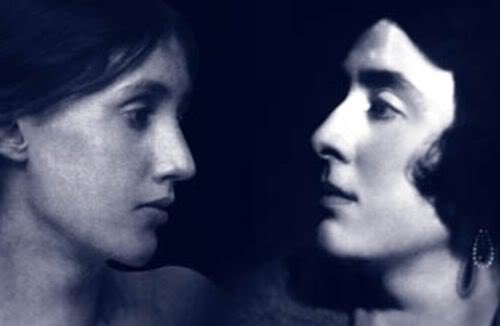Throw Over Your Man: Virginia Woolf’s 1927 Love Letter to Vita Sackville-West
by Maria Popova
“…and I’ll tell you all the things I have in my head, millions, myriads.”
 What makes an extraordinary love letter? After Monday’s omnibus of famous correspondence, I revisited a lovely decade-old book titled The 50 Greatest Love Letters of All Time, which features missives from icons like Ernest Hemingway, Jack Kerouac, Frida Kahlo, Franz Kafka, and Mozart, covering everything from tender love to lust to bitter breakups.
What makes an extraordinary love letter? After Monday’s omnibus of famous correspondence, I revisited a lovely decade-old book titled The 50 Greatest Love Letters of All Time, which features missives from icons like Ernest Hemingway, Jack Kerouac, Frida Kahlo, Franz Kafka, and Mozart, covering everything from tender love to lust to bitter breakups.
Among them is this 1927 letter from Virginia Woolf to English poet Vita Sackville-West, with whom Woolf had fallen madly in love.

Look here Vita — throw over your man, and we’ll go to Hampton Court and dine on the river together and walk in the garden in the moonlight and come home late and have a bottle of wine and get tipsy, and I’ll tell you all the things I have in my head, millions, myriads — They won’t stir by day, only by dark on the river. Think of that. Throw over your man, I say, and come.”
The gender-bending character in Woolf’s Orlando, in fact, was based on Sackville-West, and the entire novel is thought to have been written about the affair — so much so that Sackville-West’s son Nigel Nicolson has described it as “the longest and most charming love-letter in literature.”
The greatest love letters, of course, aren’t those written for public greatness — they’re the ones penned for one particular trembling heart, honeycombed with private memories and private miracles, written in the language of the possible.